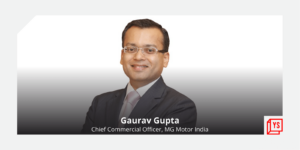Online shopping has changed course over the years. Brands across categories have tried and tested several business models, distribution channels, and customer acquisition strategies to win the ecommerce game.
In the next 10 years, ecommerce will no longer be catalogue-led, Anant Vidur Puri, partner at Bessemer Venture Partners, told YourStory.
“Gone are the days when customers like you and I would sit through a catalogue of products with colourful photographs. Visual appeal will dominate the online shopping experience and we are already seeing signs of the transition,” Anant said.
Bessemer Venture Partners is a global venture capital firm that has backed top companies in the enterprise, healthcare and consumer segments including Shopify, LinkedIn, Pinterest and Yelp. In India, it has invested in 65 companies to date including Swiggy, Pharmeasy, Ola, BigBasket and The Good Glamm Group among others.
Live commerce, social media and influencer-led marketing will drive ecommerce in the coming years, according to Anant. Brands will also have to gradually adapt to the marketplace model where customers can obtain a full-stack experience, right from product discovery to purchase.
“For example, UrbanCompany identifies, trains, and manages service professionals, allowing customers to book a service, manage the delivery experience, and execute payment on the platform. By controlling a product or service end-to-end, internet marketplaces are able to improve customer experience and create efficiencies by cutting out middlemen. This allows them to increase gross margins and benefit from higher rates of customer retention,” Anant added.
The changing portfolio of online shoppers also plays a key role. In the last five years alone, over 300 million women have come online in India, with almost two of every three new internet users being female.
The 2010s also witnessed an influx of new customers including those younger than 25 years and those above 45 years. Today, over half of India’s 50 million-plus SMEs are now digitally engaged, thanks to increased Internet adoption, digital payment infrastructure, and increased digitisation of small businesses, according to Bessemer research.
Early signs of this new cohort are already taking shape, as seen through Nykaa and The Good Glamm Group, with offerings built to serve women, arguably the largest new consumer segment in India, according to Anant.
“We believe that startups addressing these new verticals and audiences will win by niche segmentation and personalisation. What this means is that their product and service offerings will not only need to be tailored for their core audience, but also that driving revenue will be based on discovering new distribution channels or leveraging them in novel ways. In doing so, these new businesses will reach product-market fit and scale more rapidly,” he added.










